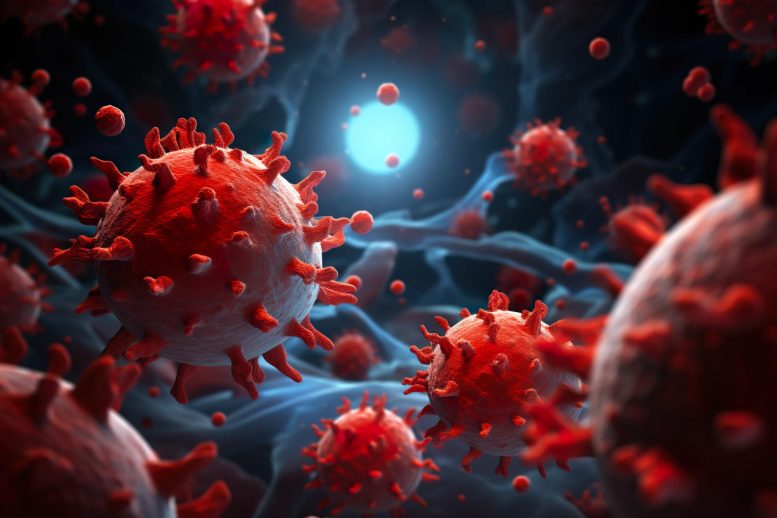
Scientists at the University of Tsukuba have discovered an unexpected connection between an enzyme known as ELOVL6, important in lipid metabolism, and the proliferation of leukemia.
Lipids, or organic fatty compounds, exist in a vast variety within cells. The creation and decomposition of these lipids, a process known as lipid metabolism, is fundamental to the regulation of cellular composition and functionality, as well as the operation of cell membranes. A particular enzyme, ELOVL6, which extends fatty acid chains, is important in several cellular metabolic processes.
Yet, the connection between lipid metabolism and both the genesis of blood and blood-related disorders remains an under-explored field in scientific research. Aiming to expand this limited understanding, researchers from the University of Tsukuba have demonstrated a significant role for ELOVL6 in the evolution of acute myeloid leukemia (AML), a type of blood cancer. This role is executed through a pathway that controls cell movement. Additionally, they found that higher levels of ELOVL6 correspond to reduced survival rates in leukemia patients.
Blocking ELOVL6 Disrupts Leukemia Development
The team observed that a deletion of ELOVL6 in bone marrow stem cells, which are responsible for producing all types of blood cells, altered cellular lipid contents and inhibited engraftment in mice—a process where transplanted stem cells travel through the blood to the bone marrow.
Importantly, the loss of ELOVL6 also prevented the development of leukemia in a mouse model. Analysis of gene expression profiles showed that the cells lacking ELOVL6 had alterations to genes involved in cytoskeletal remodeling and chemotaxis—machinery involved in cell movement. Detailed molecular studies confirmed that ELOVL6 loss impaired cytoskeletal remodeling and chemotaxis, likely through dysfunction of PI3K and Rac1, which are vital cellular regulatory molecules.
The Impact of Lipid Content on Blood Cancer Development
“Taken together, this indicates that relatively small changes to the cell membrane lipid content can have unforeseen and drastic effects on the development of blood cancers,” explains senior author Professor Shigeru Chiba. Interestingly, the group noted that though blood production and AML pathology are closely related, ELOVL6 loss did not affect normal blood production or function.
The group went on to use data available from online databases to show a link between high levels of ELOVL6 and a worse overall survival from AML. “ELOVL6 and its downstream pathways had never before been considered as potential targets for leukemia treatment, as this link between lipids and blood function was unexplored,” explains Professor Chiba.
Now, however, this study reveals that ELOVL6 and its associated pathways are very promising targets for the development of novel therapies for leukemia, and is expected to springboard further research into the relationships between lipid metabolism and cancer.
Reference: “The fatty acid elongase Elovl6 is crucial for hematopoietic stem cell engraftment and leukemia propagation” by Yusuke Kiyoki, Takayasu Kato, Sakura Kito, Takashi Matsuzaka, Shin Morioka, Junko Sasaki, Kenichi Makishima, Tatsuhiro Sakamoto, Hidekazu Nishikii, Naoshi Obara, Mamiko Sakata-Yanagimoto, Takehiko Sasaki, Hitoshi Shimano and Shigeru Chiba, 8 March 2023, Leukemia.
DOI: 10.1038/s41375-023-01842-y
This work was supported by Grants-in-Aid for Scientific Research (KAKENHI: 20646591 and 20K08724 to TK and 18968151 to HN) from the Ministry of Education, Culture, Sports, Science and Technology of Japan; the SENSHIN Medical Research Foundation to TK; the Takeda Science Foundation to HN; AMED (Grant Number JP 211m0203010 to TK); and the Project for Cancer Research and Therapeutic Evolution (P-CREATE) from AMED to SC.
Never miss a breakthrough: Join the SciTechDaily newsletter.